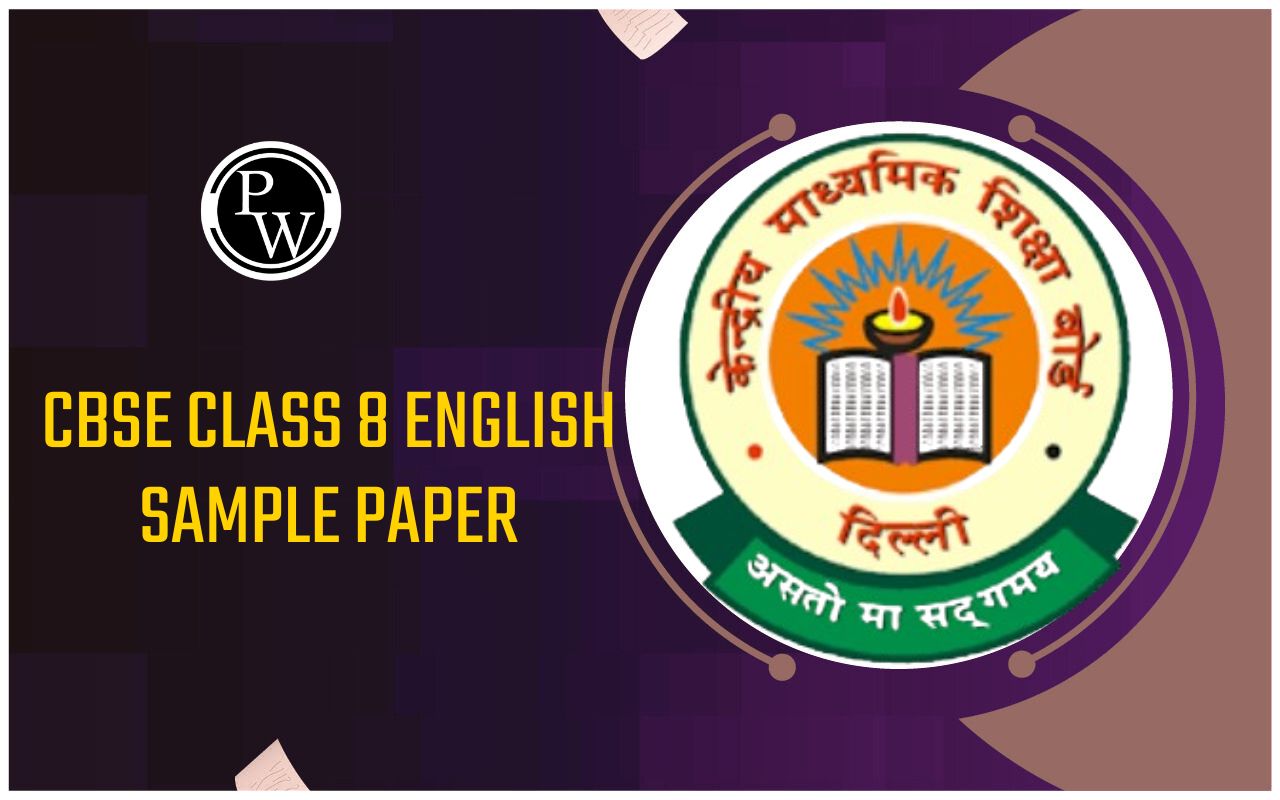
NCERT Solutions For Class 8 Social Science History Chapter 5: NCERT Solutions for Class 8 Social Science History Chapter 5 provide detailed and easy-to-understand answers for the chapter titled "When People Rebel 1857 and After."
This chapter discusses the events and causes of the 1857 revolt in India, the significant leaders involved, and the aftermath of the rebellion. The solutions help students grasp the complex historical events and their impact on India's struggle for independence. By using these solutions, students can better understand the reasons behind the revolt, the key figures who played a role, and how the British responded to the uprising. These solutions also aid in preparing for exams by providing clear explanations and well-structured answers to the textbook questions.NCERT Solutions For Class 8 Social Science History Chapter 5 Overview
These notes are prepared by subject experts from Physics Wallah for the NCERT Solutions of Class 8 Social Science History Chapter 5, "When People Rebel - 1857 and After." These notes help students easily understand the historical background, the importance of the rebellion, and its impact on India's journey to independence. By using these notes, students can better grasp the chapter's content, making it easier to study for exams and learn about Indian history.NCERT Solutions For Class 8 Social Science History Chapter 5 PDF
You can access the NCERT Solutions for Class 8 Social Science History Chapter 5 in PDF format through the provided link below. These solutions cover the chapter titled "When People Rebel - 1857 and After," which discusses the causes and events of the 1857 revolt in India, key figures involved, and the changes that followed. By using these solutions, students can effectively prepare for exams and gain a deeper understanding of this significant period in Indian history. Download the PDF to access these valuable study resources.NCERT Solutions For Class 8 Social Science History Chapter 5 PDF
NCERT Solutions For Class 8 Social Science History Chapter 5 When People Rebel - 1857 and After
The solutions provided below for NCERT Solutions for Class 8 Social Science History Chapter 5, "When People Rebel - 1857 and After." They help students learn about the historical events and their effects. These solutions make it easier for students to study for exams and understand this important part of Indian history.Exercises Page No. 64
1. What was the demand of Rani Lakshmibai of Jhansi that was refused by the British?
Answer.
Rani Lakshmibai was the queen of Jhansi. She had adopted a son and wanted him to become the ruler of Jhansi after her. However, according to Lord Dalhousie’s Doctrine of Lapse policy, an adopted son could not inherit the kingdom if the father died. Instead, the British would take control of the kingdom. Because of this policy, the British refused Rani Lakshmibai’s request to recognize her adopted son as the heir to the throne.2. What did the British do to protect the interests of those who converted to Christianity?
Answer.
After 1830, the British East India Company allowed Christian missionaries to operate freely within its territories and even own land and property. In 1850, a new law was introduced to make it easier for Indians to convert to Christianity. This law permitted converts to inherit their ancestors' property. As a result, many Indians started to believe that the British were trying to destroy their religion, social customs, and traditional way of life.3. What objections did the sepoys have to the new cartridges that they were asked to use?
Answer.
4. How did the last Mughal emperor live the last years of his life?
Answer.
The last years of the last Mughal emperor, Bahadur Shah Zafar, were marked by hardship and suffering. After the failure of the 1857 revolt, he was tried by the British and sentenced to imprisonment. Zafar was blinded and kept in captivity. In 1858, he was exiled to Rangoon (now Yangon, Myanmar) along with his wife, where they lived in confinement. Zafar spent his final years in exile, far from his homeland and deprived of his former status and privileges. He endured the pain of separation from his family and the loss of his dignity and freedom. Zafar passed away in Rangoon in 1862, marking the end of the Mughal Empire and the life of one of its last rulers.5. What could be the reasons for the confidence of the British rulers about their position in India before May 1857?
Answer.
6. What impact did Bahadur Shah Zafar’s support for the rebellion have on the people and the ruling families?
Answer.
Aurangzeb was considered the last strong and powerful Mughal ruler of India. Following his death, subsequent Mughal rulers held only a symbolic presence, though they still wielded influence over smaller chiefs and rulers across the country. The revolt of 1857 began when Bahadur Shah Zafar, the last Mughal ruler, gave his approval. His backing of the revolt instilled confidence in leaders from various regions to oppose the British. Zafar urged all leaders to unite and form a confederacy to resist British rule. Many small and large kingdoms, rulers, and chieftains rallied behind the revolt after Zafar extended his support. Therefore, his endorsement of the rebellion had a far-reaching impact on both the people and ruling families, catalyzing widespread opposition to British dominance.7. How did the British succeed in securing the submission of the rebel landowners of Awadh?
Answer.
The British adopted a two-pronged strategy to quell the rebel landowners of Awadh: a. The first approach involved executing rebel landowners who had killed British personnel. By doing so, the British aimed to intimidate the people of Awadh, showing them the severe consequences of participating in future revolts against British rule. b. The second approach was to reward landowners who remained loyal to the British. Those who did not harm any British personnel and agreed to submit to British authority were promised safety and allowed to retain their land holdings. This strategy incentivized loyalty among landowners and helped pacify the region by offering protection to those who cooperated with British rule.8. In what ways did the British change their policies as a result of the rebellion of 1857?
Answer.
After the revolt of 1857, the British Crown assumed direct control over the administration of India. This transition brought about several changes: a. The Doctrine of Lapse policy, which allowed the British to annex states without natural heirs, was abolished. b. The number of Indian sepoys in the army was reduced to minimize the risk of future rebellions against British rule. c. The rights of zamindars and landowners were strengthened, possibly to garner their support and loyalty. d. The Crown assured non-interference in the religious practices of the Indian population, aiming to allay religious tensions. e. To oversee the administration of Indian society, a Viceroy and a Secretary of State were appointed, symbolizing the direct authority of the British Crown over India's governance.Benefits of NCERT Solutions For Class 8 Social Science History Chapter 5
Clarity of Concepts : NCERT Solutions provide clear explanations and examples, making it easier for students to understand complex historical events and concepts.
Comprehensive Coverage : The solutions cover all the topics and questions in the chapter, ensuring that students have a thorough understanding of the content.
Exam Preparation : By practicing with NCERT Solutions, students can familiarize themselves with the types of questions asked in exams and improve their performance.
Structured Approach : The solutions follow a structured format, helping students organize their thoughts and answers effectively.
Self-assessment : Students can use the solutions to assess their understanding of the chapter and identify areas where they need further practice or clarification.
Enhanced Learning : The solutions provide additional information and insights, enriching students' learning experience and broadening their knowledge of history.
Accessible Resource : NCERT Solutions are readily available and accessible to all students, allowing them to study at their own pace and convenience.
NCERT Solutions For Class 8 Social Science History Chapter 5 FAQs
Why did the revolt of 1857 occur?
Who was Bahadur Shah Zafar and what role did he play in the revolt?
What were the consequences of the revolt of 1857?
How did the British suppress the revolt of 1857?
What changes were introduced by the British after the revolt of 1857?









